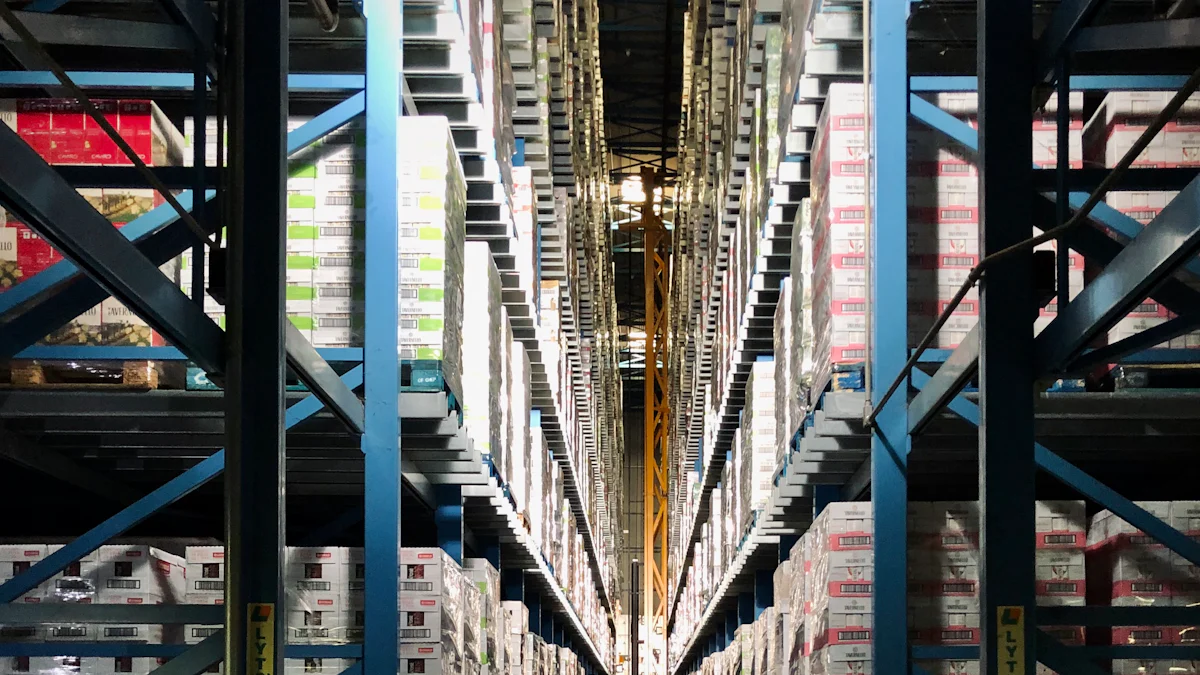JUSDA's Innovations in Customer-Centric Supply Chain Management

JUSDA stands out as the exclusive service provider for Foxconn Technology Group. With nearly two decades of expertise in lean supply chain practices, JUSDA focuses on end-to-end integration, from raw materials to end products. Emphasizing customer-centricity, JUSDA collaborates with over 3,000 3C component manufacturers globally, serving renowned brands and leading the industry with tailored solutions.
In today's dynamic market landscape, prioritizing customer-centric supply chain strategies is paramount for sustained success. This blog delves into JUSDA's innovative approaches and how they revolutionize traditional supply chain paradigms to enhance customer experiences and operational efficiencies.
Understanding Customer Needs

Behavioral Segmentation
Understanding customer behavior is crucial for tailoring supply chain strategies effectively. By analyzing purchasing patterns and preferences, businesses can align their offerings with what customers truly desire. This segmentation approach allows companies to anticipate needs and provide personalized experiences, ultimately enhancing customer satisfaction and loyalty.
Aligning Supply Chain with Customer Needs
To ensure a seamless alignment between the supply chain and customer requirements, businesses must focus on customizing product offerings and enhancing delivery services. By tailoring products to meet specific demands and optimizing delivery processes, companies can elevate the overall customer-centric supply chain experience.
Customizing Product Offerings
Flexible Manufacturing Processes
Implementing flexible manufacturing processes allows companies to adapt swiftly to changing customer preferences and market demands. By incorporating agile production methods and responsive manufacturing technologies, businesses can efficiently customize products according to individual customer specifications. This approach enhances product personalization and increases customer satisfaction by delivering tailored solutions promptly.
Personalized Packaging
Personalized packaging plays a crucial role in enhancing brand perception and creating memorable unboxing experiences for customers. By designing unique packaging solutions that resonate with target audiences, businesses can establish a distinctive brand identity and foster emotional connections with consumers. Customized packaging not only adds value to the product but also showcases a commitment to meeting customer expectations through thoughtful presentation.
Enhancing Delivery Services
Real-Time Tracking
Integrating real-time tracking capabilities into the supply chain enables customers to monitor their orders seamlessly from dispatch to delivery. By providing transparent visibility into shipment status and estimated arrival times, businesses empower customers with control over their purchases. Real-time tracking enhances trust and reliability in the supply chain process, leading to improved customer satisfaction and loyalty.
Expedited Shipping Options
Offering expedited shipping options caters to customers seeking fast and efficient delivery services. By providing expedited shipping choices at checkout, businesses meet the needs of time-sensitive consumers who prioritize quick order fulfillment. Expedited shipping not only accelerates order processing but also demonstrates a commitment to prioritizing customer convenience and satisfaction through prompt service.
Implementing Technological Innovations

Integrating Advanced Analytics
Predictive Analytics
AI algorithms revolutionize supply chain analytics by swiftly processing extensive data sets, extracting valuable insights, and empowering organizations to make proactive decisions based on accurate predictions.
The application of AI predictive analytics in supply chain management involves analyzing historical data trends and leveraging AI algorithms to forecast future demand patterns, market trends, and potential disruptions. This transformative approach enhances decision-making processes and enables businesses to adapt swiftly to changing market dynamics.
Utilizing Automation and AI
Automated Warehousing
Leveraging automated warehousing solutions streamlines supply chain operations by optimizing inventory management, order fulfillment processes, and warehouse logistics. These automated systems enhance efficiency, reduce operational costs, and ensure seamless coordination within the warehouse environment.
Automated warehousing technologies integrate robotics, IoT sensors, and real-time data analytics to automate routine tasks such as inventory tracking, picking, packing, and shipping. By implementing these advanced solutions, businesses can achieve higher accuracy levels in inventory control and order processing while improving overall operational productivity.
AI-Driven Demand Forecasting
AI-driven demand forecasting tools enable businesses to anticipate customer demand accurately, optimize inventory levels, and enhance supply chain planning processes. By leveraging machine learning algorithms and predictive models, organizations can analyze consumer behavior patterns, market trends, and external factors to forecast demand with precision.
These innovative technologies empower businesses to make data-driven decisions regarding production schedules, procurement strategies, and distribution plans. By incorporating AI-driven demand forecasting into their supply chain operations, companies can minimize stockouts, reduce excess inventory holding costs, and improve overall customer satisfaction levels through timely order fulfillment.
Continuous Improvement and Feedback Loop
To drive operational excellence and enhance customer satisfaction, businesses must prioritize continuous improvement initiatives and establish a robust feedback loop within their customer-centric supply chain framework. By monitoring performance metrics and proactively adapting to market changes, organizations can optimize their processes, address evolving consumer needs, and maintain a competitive edge in the industry.
Monitoring Performance Metrics
Key Performance Indicators (KPIs)
Identifying and tracking key performance indicators (KPIs) is essential for evaluating the effectiveness of supply chain operations. Metrics such as on-time delivery rates, order accuracy, and inventory turnover provide valuable insights into process efficiency and customer service levels. By analyzing KPI data regularly, companies can identify areas for improvement, set benchmarks for success, and align strategies with overarching business objectives.
Customer Satisfaction Scores
Customer satisfaction scores serve as a direct reflection of how well businesses are meeting consumer expectations. By collecting feedback through surveys, reviews, and post-purchase evaluations, organizations can gauge customer sentiment, identify pain points in the supply chain journey, and implement targeted improvements. High customer satisfaction scores indicate strong brand loyalty and positive engagement with the customer-centric supply chain model.
Adapting to Market Changes
Agile Supply Chain Strategies
Embracing agile supply chain strategies enables companies to respond swiftly to market dynamics and changing consumer preferences. By fostering flexibility in production processes, inventory management, and distribution channels, businesses can adapt proactively to fluctuations in demand, disruptions in the supply chain network, or emerging industry trends. Agility empowers organizations to stay ahead of the competition by anticipating shifts in the market landscape and adjusting operations accordingly.
Proactive Problem Solving
Proactive problem-solving is a cornerstone of effective customer-centric supply chains, where preemptive measures are taken to mitigate risks and resolve issues before they impact customer experience. By conducting root cause analyses, scenario planning exercises, and cross-functional collaboration sessions, businesses can anticipate potential challenges, implement contingency plans, and ensure seamless operations under varying circumstances. Proactive problem-solving fosters resilience within the supply chain ecosystem while reinforcing trust with customers through consistent service delivery.
Highlighting JUSDA's pioneering customer-centric solutions underscores their commitment to enhancing supply chain operations.
The transformative impact of these innovations resonates throughout the industry, elevating efficiency and responsiveness.
Embracing a future centered on customer needs is pivotal for sustained success in supply chain management.
Businesses are urged to emulate JUSDA's strategies to cultivate lasting customer relationships and drive operational excellence.
See Also
Effective Tactics for Advanced Manufacturing with JUSDA's Supply Chain Solutions
Analysis: JUSDA's Warehouse Automation Success Story
Key Approaches to Enhance Automotive Supply Chain Performance | JUSDA Insights
Maximizing Supply Chain Efficiency: Meaning, Advantages, and Approaches
Comparing Techniques for Optimizing Supply Chains in Advanced Manufacturing
